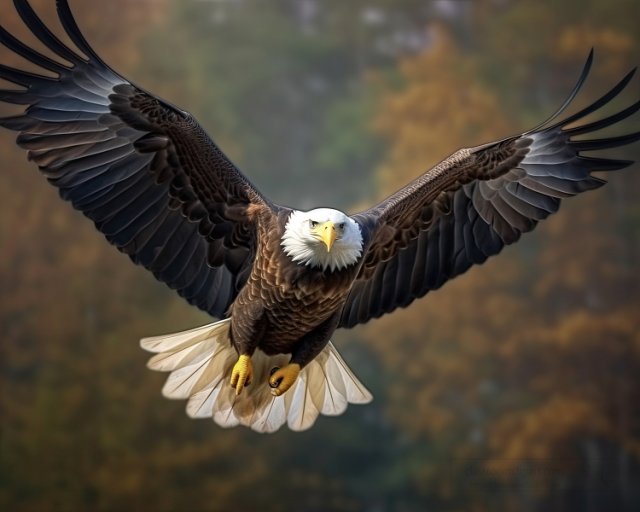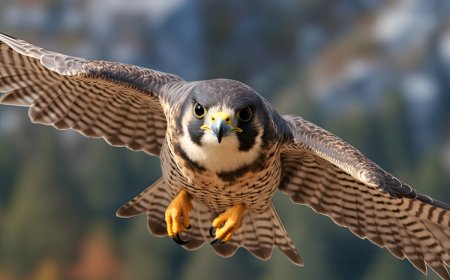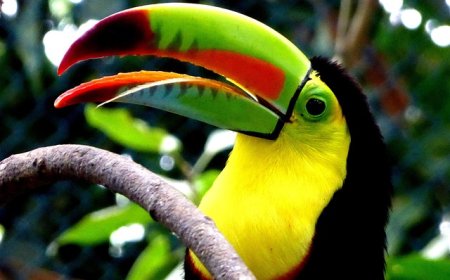Bald Eagle Facts for Kids: Diet, Nesting and Adaptations
Discover bald eagles in this engaging guide for kids. Learn about their diet, nesting, amazing eyesight, and how they recovered from endangerment.

🦅 Bald Eagles: The Majestic Symbols of America
Bald eagles are some of the most powerful and admired birds in the world. With their white heads, huge wingspans, and fierce eyes, they are easy to recognize. Once almost extinct in the United States, bald eagles have made an incredible comeback. Today, they are not only thriving but are celebrated as the national bird and symbol of freedom.
🧬 Scientific Classification
Bald eagles belong to a group of birds called birds of prey, or raptors, which hunt and eat other animals.
Classification:
Kingdom: Animalia
Phylum: Chordata
Class: Aves (birds)
Order: Accipitriformes
Family: Accipitridae
Genus: Haliaeetus
Species: Haliaeetus leucocephalus
The bald eagle’s scientific name, Haliaeetus leucocephalus, means “white-headed sea eagle.”
🦅 Description and Adaptations
Bald eagles are large birds with strong, sharp beaks and powerful talons that make them excellent hunters. Adults are easy to identify: they have a bright white head and tail with dark brown bodies and wings. Their beaks and feet are yellow.
Size and Features:
Wingspan: up to 7.5 feet (2.3 meters)
Weight: about 6–14 pounds (2.7–6.3 kg)
Body length: 28–40 inches (71–102 cm)
Adaptations:
Excellent eyesight—they can see fish from hundreds of feet above the water.
Strong talons to grab slippery prey.
Hooked beak for tearing meat.
Large wings for soaring long distances without much effort.
Young bald eagles are mostly brown with white speckles. They don’t get their famous white heads until they are about 5 years old.
🌍 Habitat and Range
Bald eagles live near large bodies of water, where they can find plenty of fish to eat. They prefer:
Coasts
Lakes
Rivers
Wetlands
Range:
Found across most of North America, including Alaska, Canada, and the lower 48 United States.
Alaska has the largest population of bald eagles in the world.
In winter, some eagles migrate south where water does not freeze.
🐟 Diet and Hunting Behaviors
Bald eagles are carnivores. They eat mostly fish, but they will also hunt or scavenge other food.
Typical Diet:
Fish like salmon, trout, and herring
Ducks and waterbirds
Small mammals such as rabbits
Carrion (dead animals)
Bald eagles often hunt by perching in a tall tree and watching the water. When they spot a fish, they swoop down and grab it with their talons. Sometimes they steal food from other birds, like ospreys. This behavior is called kleptoparasitism.
🪺 Reproduction and Nesting
Bald eagles are monogamous, meaning they usually keep the same mate for life. During breeding season, they perform aerial displays and calls to strengthen their bond.
Nesting:
Nests are called aeries.
Built high in large trees or cliffs near water.
Made of sticks and lined with softer materials.
Can be 8 feet wide and weigh over a ton.
Reproduction:
Female lays 1–3 eggs.
Both parents take turns incubating the eggs for about 35 days.
Chicks, called eaglets, hatch helpless and stay in the nest for about 10–12 weeks before learning to fly.
🛡️ Conservation Status
Bald eagles were once endangered due to:
Hunting and shooting.
Loss of habitat.
DDT pesticide, which caused eggshells to become thin and break.
In 1963, there were fewer than 500 nesting pairs in the lower 48 states. Thanks to laws protecting them and banning DDT, their population has recovered. In 2007, bald eagles were removed from the U.S. Endangered Species List. Today, they are listed as Least Concern, but they are still protected by law.
✨ Fun Facts About Bald Eagles
The bald eagle is not really bald—“bald” comes from an old word meaning “white-headed.”
They can carry prey weighing up to 4 pounds.
A bald eagle’s grip is ten times stronger than a human hand.
They have 14 vertebrae in their neck, allowing them to turn their heads nearly all the way around.
Bald eagles have about 7,000 feathers.
The oldest known wild bald eagle lived to be 38 years old.
📝 Kid-Friendly Summary
Bald eagles are big birds of prey with white heads and yellow beaks. They live near water and eat mostly fish. They build enormous nests called aeries and often stay with the same mate for life. Even though bald eagles were once endangered, they are now a conservation success story and a symbol of freedom and strength.
🧠 Vocabulary Words
Word Definition
Aerie A large nest built high up in trees or cliffs.
Predator An animal that hunts and eats other animals.
Talon A sharp claw used to grab prey.
Monogamous Having only one mate during a breeding season or for life.
Carrion The flesh of dead animals.
Kleptoparasitism Stealing food from other animals.
Incubate To keep eggs warm until they hatch.
Endangered At risk of disappearing forever.
Conservation Protecting animals and their habitats.
Wingspan The distance from the tip of one wing to the tip of the other when spread.
🎲 Interactive Quiz
Multiple Choice Questions
What is a bald eagle’s main food?
A) Fruit
B) Fish
C) Insects
D) Seeds
What is a bald eagle’s nest called?
A) Burrow
B) Aerie
C) Den
D) Lodge
At what age do bald eagles get white heads?
A) 1 year
B) 2 years
C) 5 years
D) 10 years
What special behavior involves stealing food from other birds?
A) Migration
B) Kleptoparasitism
C) Hibernation
D) Molting
What was a major cause of bald eagle decline?
A) Too much rain
B) DDT pesticide
C) Cold weather
D) Loud noises
True or False Questions
Bald eagles are mammals.
True / False
Both parents help care for eaglets.
True / False
Bald eagles were removed from the Endangered Species List.
True / False
Eagles build nests underground.
True / False
Bald eagles have excellent eyesight.
True / False
Answer Key:
1–B, 2–B, 3–C, 4–B, 5–B, 6–False, 7–True, 8–True, 9–False, 10–True
🎨 Visual Aids Suggestions
Diagram of a bald eagle’s anatomy
Map of bald eagle range in North America
Timeline of conservation recovery
Photos comparing adult and juvenile eagles
Illustration of a bald eagle in flight with labeled parts
🔍 High-Ranking SEO Title, Description, Keywords, and Slug
✅ SEO Title:
Bald Eagle Facts for Kids: Diet, Nesting, Adaptations, and Comeback Story
✅ SEO Description:
Discover bald eagles in this engaging guide for kids. Learn about their diet, nesting, amazing eyesight, and how they recovered from endangerment.
✅ SEO Keywords:
bald eagle facts for kids, bald eagle diet, bald eagle nest, bald eagle adaptations, bald eagle conservation, bald eagle migration, bald eagle life cycle, what do bald eagles eat, bald eagle anatomy
✅ SEO Slug:
bald-eagle-facts-nesting-adaptations-conservation




















































